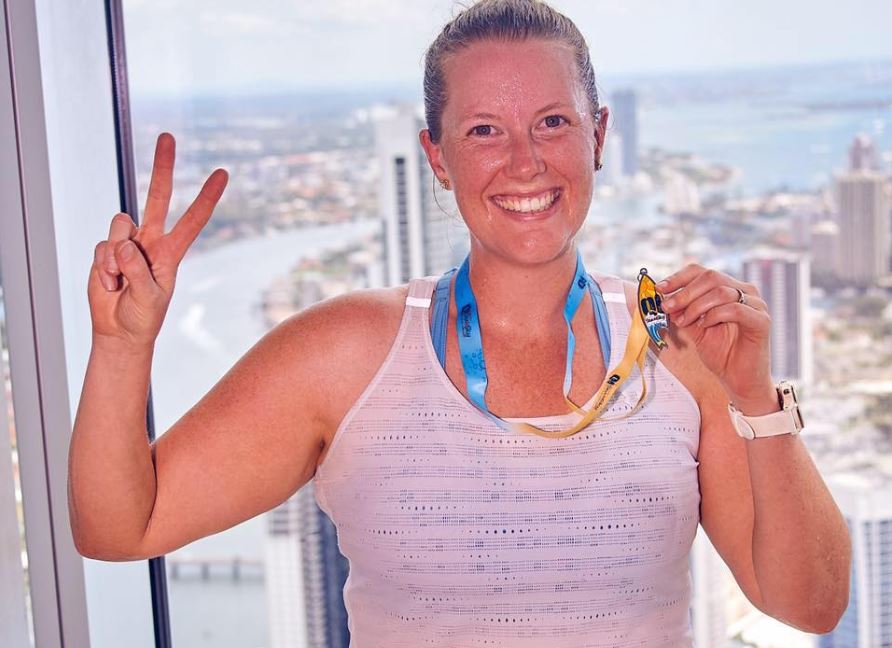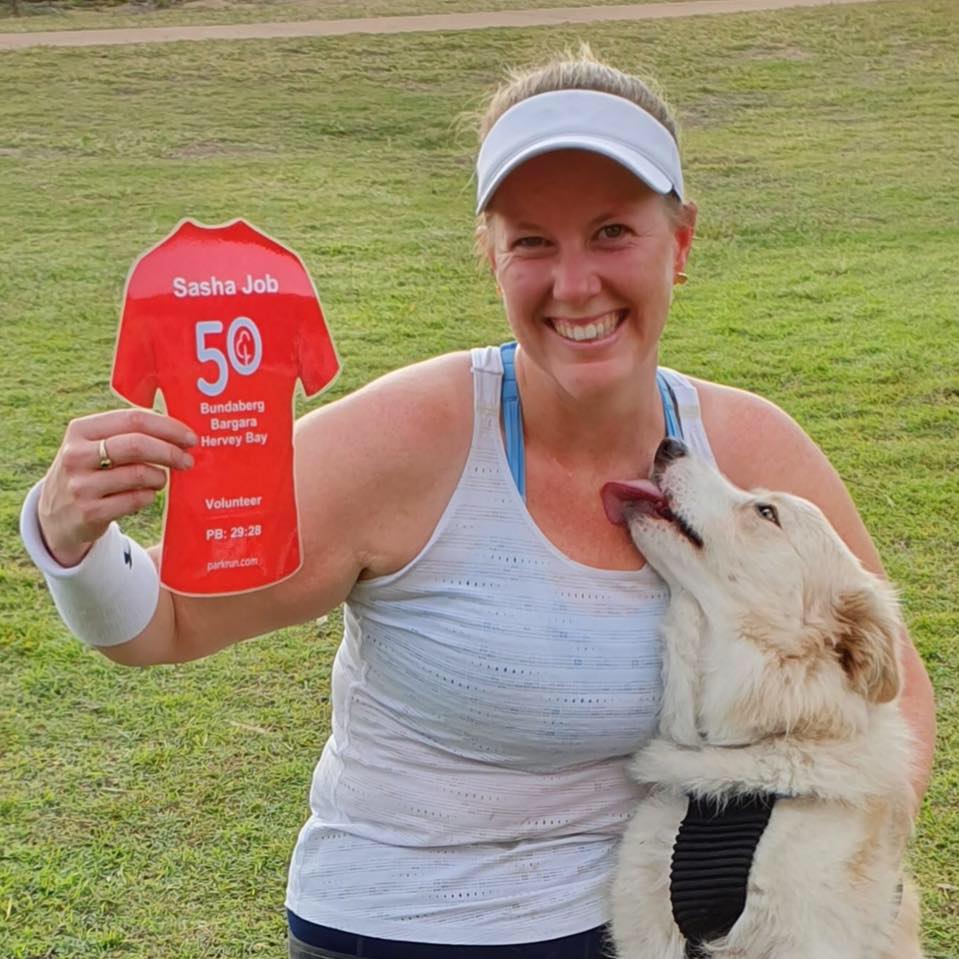
A local CQUniversity lecturer is spreading positivity during the Coronavirus pandemic by defining how fitness can keep the mind happy and body healthy.
Sasha Job, who runs the business called Inspiring Habits, has given some sound advice on how people can stay physically and mentally healthy during COVID-19.
Sasha’s advice on staying happy and healthy
It is natural for everyone to feel a level of stress and anxiety during the current unprecedented situation with COVID-19. Under the circumstances, it’s completely understandable.
However, the public anxiety exhibited in the past weeks has been disproportionate to the risk posed by the virus itself, as we understand it today.
A lot of information being shared on social media is not socially responsible, educated, accurate, or proactive. I can see the impact on those I love and care for, my local and broader community, and even myself.
I am no expert in the psychology of public fear, infectious disease or government operations, however given my dual qualifications and experience in physiotherapy and exercise science I thought I may be well positioned to share with you some of my thoughts on COVID-19 and physical activity.
This is not intended to be a complete evidence based review, but rather a summary of educated, rational thought on physical activity during these times.
COVID-19 is causing considerable fear and anxiety when it comes to physical activity.
As this situation rapidly evolves, for the first time in my lifetime, we are seeing widespread cancellation of sporting and exercise related activities.
Whilst we must remain vigilant and concerned, we must also remain physically active.
Hand hygiene remains the single best action individuals can take to reduce the risk of acquiring COVID-19.
Social distancing has also been shown to be an effective measure.
For specific details on what you can do to protect yourself and others, refer to a reliable and regularly updated resource like the Australian Government’s health website.
What about the role of physical activity?
Exercise will, and increasingly so, play an important role in maintaining our physical and mental health.
Exercise has well documented positive effects, some of which are immediate, some of which are long term, and many of which are profound.
Again, I want to stress that this an educated opinion piece, so I’m not going to site all of the high quality literature outlining the benefits of exercise, but I will summarise a few that are pertinent to our current situation.
• General health benefits include: improved cardiovascular health (e.g. reduced risk of heart attack, lower cholesterol levels); stronger bones, muscles and joints; management of a healthy weight; “feeling better” with more energy, improved mood, feeling more relaxed and sleeping better; improved recovery from periods of illness, hospitalisation or bed rest.
• Mental health benefits include: prevention and management of depression and anxiety; stress relief; improved memory; better sleep; boosts overall mood.
If the benefits outlined above haven’t motivated you to be active, you are not alone.
At a time when many sporting and physical activity events are being cancelled and emotions are volatile, finding your “why” will be hard.
For me, my current “why” is to help me to choose happy.
I am exercising for a healthier state of mind.
As already mentioned, there are many benefits of exercise that directly impact mental health.
Exercise is helping me to block negative thoughts and momentarily distract me from my daily worries.
At times, I am still exercising with others, ensuring I am socially responsible in doing so.
Sometimes this is an organised outdoor exercise session, other times it is a walk with a neighbour and our dogs, and many times it is a good old game of backyard cricket.
This interaction alone is very important for me.

Maintaining regular physical activity is also helping me to sleep better, and cause important chemical changes in my brain (e.g. serotonin, endorphins and stress hormones).
This is my current “why” in a nutshell. I choose exercise to choose happy.
Before lacing up and running out the door to get active, we firstly need to consider how we exercise to ensure adherence with government recommendation. How do we do this?
• Avoid exercise in crowded spaces, especially those that are enclosed.
• Adhere to the government’s recommendations on hygiene and social isolation – the world health organisation’s COVID-19 website also has some excellent resources.
• Pay particular attention to sport specific hygiene (e.g. avoid sharing towels or water bottles, don’t share equipment, leave the high-5 hanging and celebrate with forearm contact fist pumps).
Secondly, we need to consider how we exercise so that we actually achieve the potential benefits of exercise.
Refer to the national physical activity guidelines for specific recommendations based on your age and exercising safely.
Exercise is also a potentially very important means for keeping our immune system healthy (along with the rest of our body and mind, of course!). This is another important consideration during the COVID-19 pandemic.
What do we know, and what should we do to exercise with the intent to optimise our immunity?
• Regular bouts of moderate intensity exercise appear to reduce infection risk. There is strong evidence to support this. Moderate exercise is associated with increased immunosurveillance (i.e. better host defence). Benefits are transient, so regular exercise is important. Greater resistance to pathogens is demonstrated in individuals with moderately active lifestyles.
• Heavy training programs or prolonged bouts of exercise appear to have “open windows” where the immune system is temporarily reduced. However, it is important to point out that evidence is not conclusive regarding the significance of this due to limitations in how and when we can measure immunity. Our immune system is very adaptable, and has considerable redundancy, so just because there is a change in isolated circulating immune cells, it does not specifically mean infection risk is higher. From an immune perspective, if exercising at higher intensities, or increased frequency, ensure exercise doesn’t extend past exhaustion. Also ensure that recovery periods are sufficient so that “open windows” don’t combine (i.e. allowing the immune system to recover before the next bout of exercise prevents progressive accumulation of transient periods of reduced immune system function).
• Avoid exercise if you have flu-like symptoms.
So, what am I trying to say? Be active, but responsibly so.
Find your “why” and understand your body’s response to exercise so that you participate in regular physical activity and improve your overall health – physically and mentally.
To read Sasha’s full post or to find out more about Inspiring Habits and how the happy and healthy outlook can be beneficial to you click here.
- Related stories: Call for blood and plasma as donor numbers drop








Great article! Thank you.